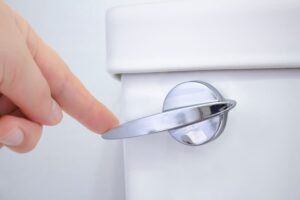Is Frequent Urination at Night a Bad Sign?
Most people have to use the bathroom during the night once in a while. However, when a person experiences frequent urination at night, they may have nocturia, a symptom of many urological conditions. Bergen Medical Associates serves patients in northern New Jersey and the surrounding areas with comprehensive medical care, including urology services. Here, we share information about frequent nighttime urination, its causes, and treatment options.
What Is Nocturia?
Frequent urination at night, or nocturia, is defined as getting out of bed to urinate one or more times per night. However, it is typically most bothersome when it causes a person to wake up more than two times a night. Nocturia is not a medical condition, but rather a symptom of other conditions. It is common and affects both younger and older people. Nocturia can be connected to other health problems and can lead to issues like sleep disturbances, irritability, increased stress, and more.
What Causes Nocturia?
Nocturia is most often seen in older men, with estimates that around 50% of men in their seventies have to wake up at least twice per night to urinate. There are a few main causes of nocturia, which include:
Nocturnal Polyuria
Nocturnal polyuria, or producing excess urine at night, is the most common cause of nocturia. In around 88% of nocturia cases, nocturnal polyuria is thought to be a contributing factor. Certain medications like diuretics, having a decreased bladder capacity, and poor kidney function from diabetes can also cause a person to have nocturnal polyuria, which results in nocturia.
Underlying Health Conditions
There are a range of medical conditions that can contribute to nocturia, ranging from urological conditions to sleep disorders. They include:
- Urinary tract infections (UTIs): These infections can make a patient feel the need to urinate frequently, even at night.
- Enlarged prostate: This condition can cause the prostate to press on the bladder or urethra, leading to urges to urinate during the night and other bathroom issues.
- Obstructive sleep apnea (OSA): This condition causes sleep disruptions that may make a person more likely to notice the need to urinate during the night.
- Peripheral edema: This swelling in the legs can transfer to other areas of the body when a patient lays down, causing the need to urinate.
These conditions can make a person more likely to develop nocturia, although not all people with these disorders will experience it.
Lifestyle Factors
If a medical condition or problem is not causing a patient’s nocturia, lifestyle factors could be the cause. Some of them include:
- Regularly drinking substances like alcohol and caffeine that can increase urine production
- Drinking lots of fluids during the day and before bed
- Taking certain medications that increase urine production, such as diuretics
The cause of a patient’s nocturia will determine how best to handle it. Patients concerned about their nighttime urination should speak to a specialist to learn more.
How Do You Manage Frequent Urination at Night?
When a person is dealing with frequent urination at night, they may just try to deal with it. This is fine if the problem is not ongoing. However, if nocturia leads to other complications like stress, fatigue, and irritability, it’s a good idea to speak to a specialist about managing it. At Bergen Medical Associates, our urology team can recommend treatment options for nocturia and related conditions. Options to manage nocturia include:
Lifestyle Changes
As mentioned above, nocturia can be caused by certain lifestyle habits like consuming alcohol or caffeine regularly or drinking fluids late in the day. Luckily, these lifestyle factors can be adjusted to help decrease nocturia. Doctors often recommend decreasing alcohol and caffeine intake, especially in the afternoon and before bed. This is because they both increase urine production and can cause sleep disturbances. It is also recommended to consistently hydrate throughout the day, rather than trying to get all your water in at the end of the day.
Treat the Underlying Condition
If a patient’s nocturia is the result of another medical condition, treating that condition can also help nocturia subside. For example, if a patient has a UTI or enlarged prostate that causes them to need to urinate at night, the doctor may prescribe medications to treat the problem.
Sleep Hygiene Practices
Another option for managing nocturia is practicing better sleep hygiene, which refers to a patient’s sleep environment and habits. It means to improve the patient’s sleeping routine through strategies like:
- Keeping a consistent sleep schedule
- Maintaining a bedtime routine
- Practicing meditation or relaxation techniques
- Exercising regularly to lead to deeper sleep
- Customizing the bed and bedroom to be comfortable and free from distractions
- Limiting the use of electronic devices before bed
These steps can help improve sleep hygiene and result in better sleep overall, reducing sleep disturbances that may wake a person up and result in them needing to use the bathroom.
These are some of the common ways to manage nocturia, but every case is different. Speaking with an experienced urology specialist is the best way to get nocturia under control.
Get Help from a Urology Specialist at Bergen Medical Associates
Patients dealing with frequent urination at night or other urology symptoms do not have to deal with them alone. They can turn to Bergen Medical Associates, with several office locations in northern New Jersey. We have earned a reputation for providing comprehensive and compassionate care. Patients can trust the experienced urology team at Bergen Medical Associates, led by Richard Garden, MD, for answers and treatment that will get them back to sleeping soundly. For more information about nocturia treatment from Bergen Medical Associates in northern New Jersey, contact us today.
Leave a reply
